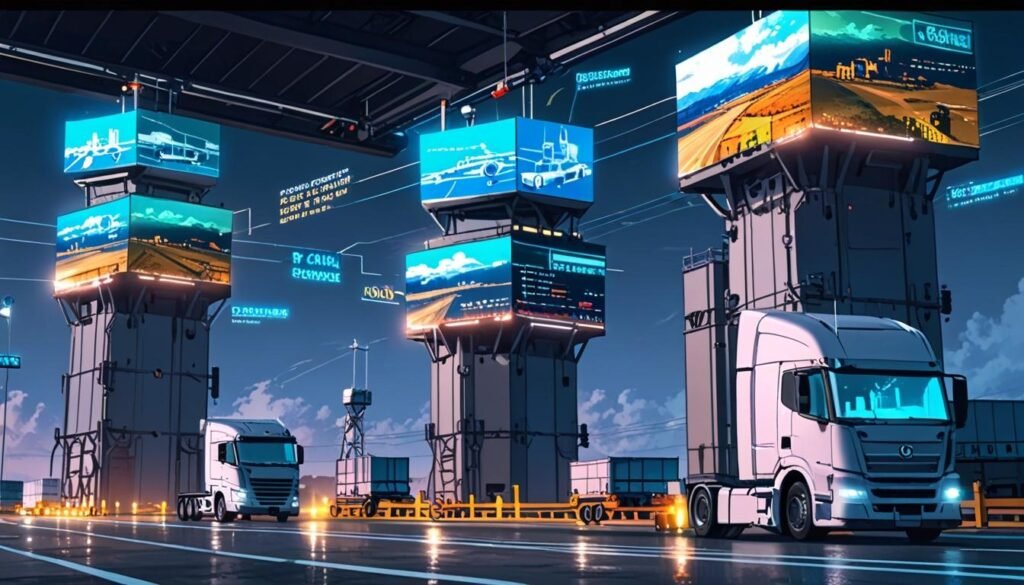**Global supply chains**: Automation, AI, and big data are rapidly reshaping supply chain management with digital control towers and robotic operations, reducing low-skilled roles but increasing demand for tech-savvy professionals with strategic and interpersonal skills over the next decade.
A recent article published by the Harvard Business Review titled “The Death of Supply Chain Management” has sparked considerable discussion within the supply chain community regarding the evolving role of automation, artificial intelligence (AI), and big data in the industry. The article asserts that traditional supply chain management as it is known today may become obsolete within the next five to ten years, replaced by highly automated, self-regulating systems requiring minimal human intervention.
The article highlights how automation has already reshaped various facets of supply chains. Many companies have automated transactional purchasing activities and frontline warehouse roles, while innovations such as driverless trucks are poised to further transform logistics by potentially eliminating millions of truck driver jobs. Furthermore, white-collar positions are not immune, with automation increasingly enabling functions like demand forecasting to shift from a subjective art to a data-driven science.
At the core of this transformation is the emergence of “digital control towers” — specialised operations centres staffed with data analysts who monitor and address supply chain challenges in real-time. These control towers resemble airport towers and utilise vast arrays of technological tools including 3D graphical displays, sensors, and automated correction systems to optimise end-to-end supply chain workflows. For example, mining company Rio Tinto employs robotic train operators alongside cameras and tracking sensors to automate its supply chain from mine to port.
Despite these advancements, the article and commentary from Supply Chain Game Changer emphasise that skilled supply chain professionals will continue to be essential. Automated systems still require individuals who deeply understand supply chain intricacies to monitor operations, interpret data, respond to exceptions, and manage complex problem-solving. As automation takes over repetitive and transactional tasks, the demand shifts towards professionals who can extract insights from large data sets, communicate findings to leadership, and bridge technology with operational knowledge.
Educational institutions and industry leaders are encouraged to reorient training to prepare supply chain talent for these emerging needs. Executives must develop capabilities to manage information flows among specialised teams rather than merely overseeing manual tasks. Specialists who can design, implement, and maintain automated, technology-driven supply chains will see rising demand.
Importantly, the human element in supply chain management remains irreplaceable in certain aspects. Negotiating large-scale procurement contracts, fostering vendor relationships, and employing emotional intelligence to deliver strategic value are tasks where human judgment and interpersonal skills remain pivotal. While machines may eventually master tactical execution, strategic decision-making rooted in human insight is expected to endure.
The historical analogy with the Industrial Revolution is noteworthy. Just as mechanisation altered job types in the 19th century British textile industry—eliminating some roles but creating new demands for production management—the current wave of technological disruption is similarly set to reshape the employment landscape in supply chains. The overall effect includes a reduction in demand for transactional and low-skilled roles but an increase in opportunities for highly skilled and adaptable supply chain professionals.
Supply Chain Game Changer, a company actively involved in supply chain recruitment, reports that demand for high-skilled candidates with technical and interpersonal competencies continues to grow, contradicting notions that supply chain management is becoming obsolete. Instead, the profession is evolving, with a premium placed on continuous upskilling and mastery of both technology and human-centric skills.
In summary, while AI, big data, and automation are revolutionising supply chain management by enhancing visibility, efficiency, and risk mitigation, the discipline is far from disappearing. Instead, it is undergoing a significant transformation, seeking professionals equipped to navigate and lead in an increasingly automated and data-driven environment.
Source: Noah Wire Services





